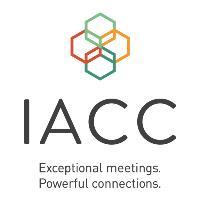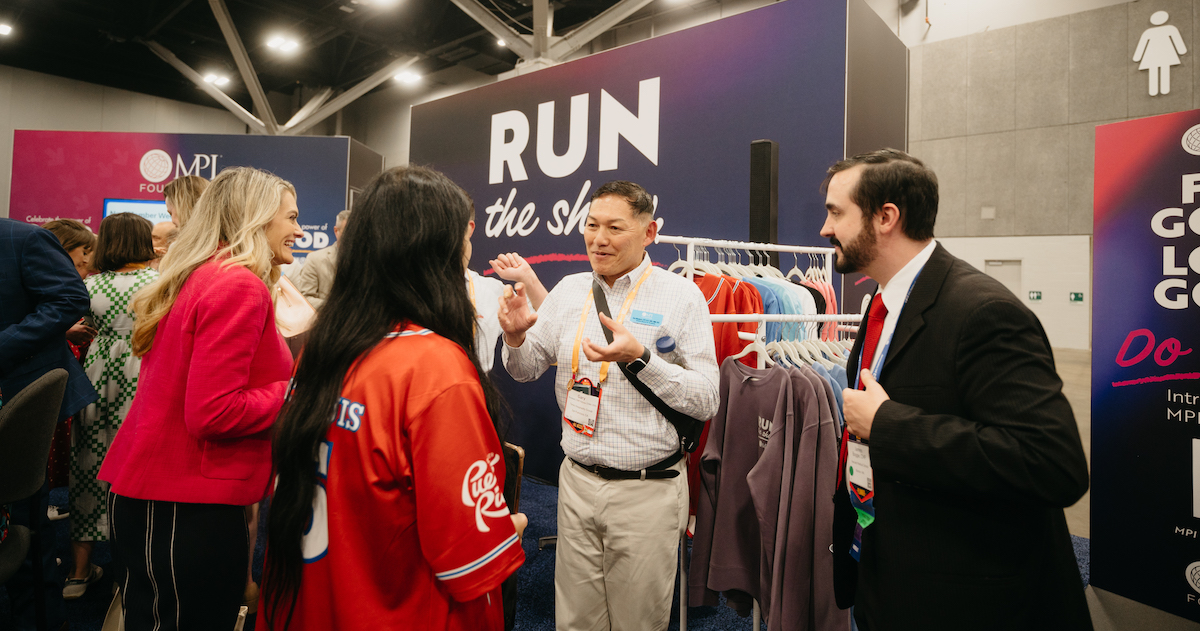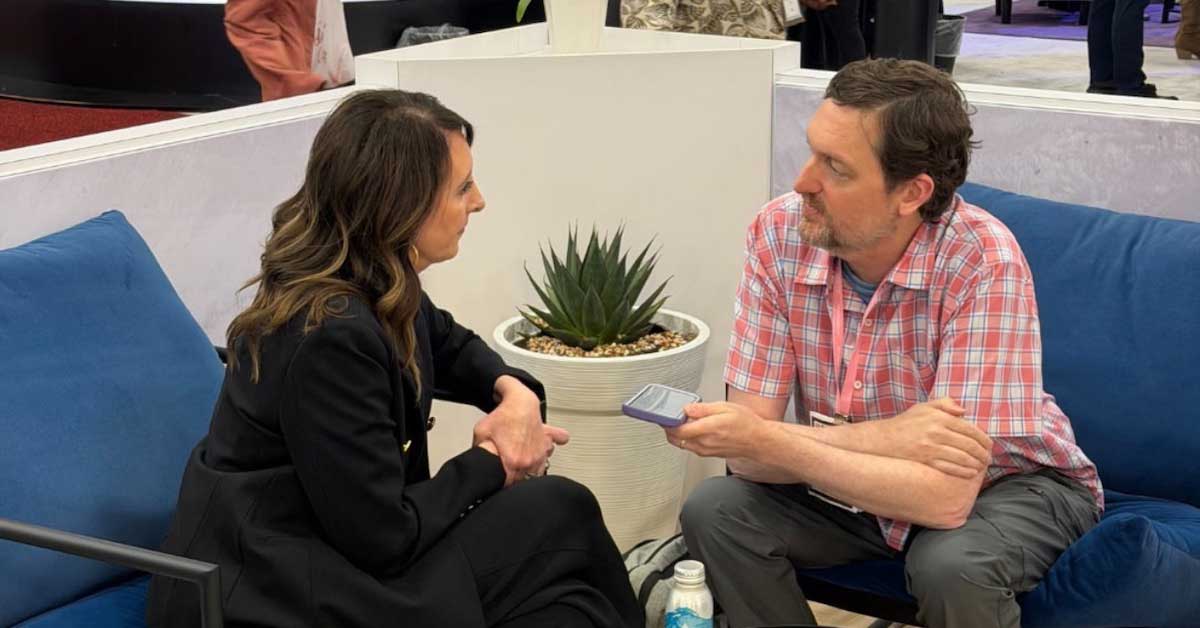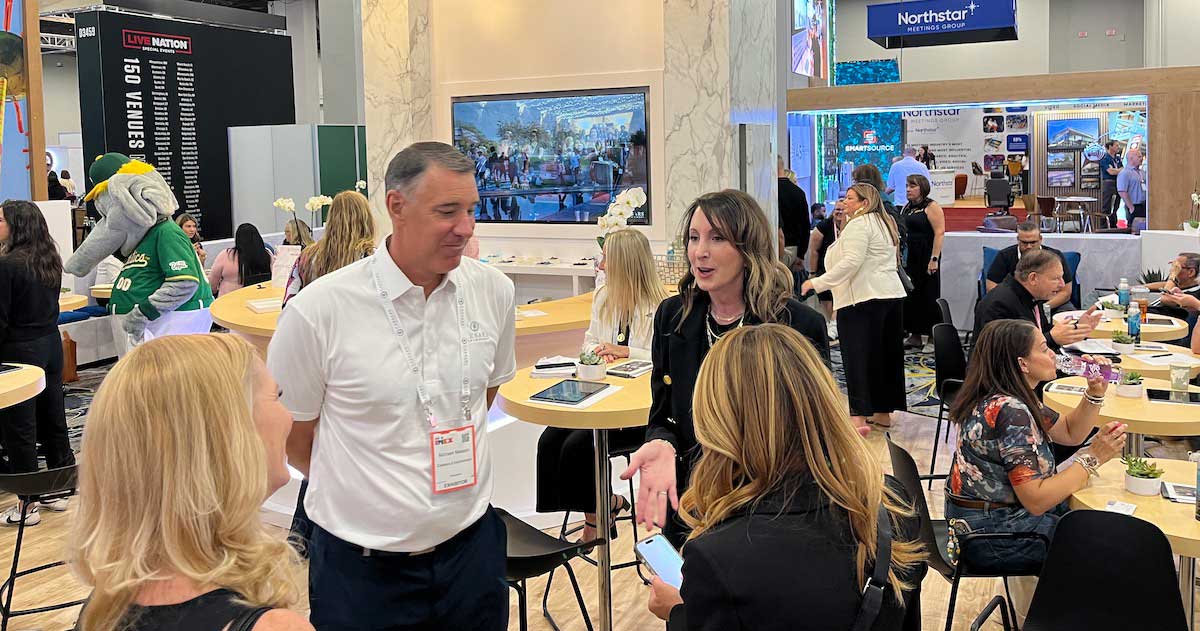This story is part of a special section from The Meeting Professional brought to you by

When an association decides to roll out a strategic initiative that will be transformative for its stakeholders, “ah-ha moments” are often experienced along the way.
“I can actually remember specifically when my awareness of the dietary role came into focus,” says Mark Cooper, CEO of IACC, which is educating members and others about managing the specialty dietary needs of event attendees. “In June 2017, I was speaking at the MPI World Education Congress (WEC) in Las Vegas about trends related to meetings of the future. I asked about 250 participants if managing dietary requirements was something that they thought would change in the future, and about 80 percent of the group raised their hands. And an equal measure raised their hands when I asked if managing dietary needs of their attendees was a challenge for them because of the amount of requests that they are being faced with now.”
From that point forward he realized that managing dietary requirements for meetings and events was something that had changed fundamentally in a way that meeting planners and venues would need to address in a more structured and information-based way.
“That’s what really put the spotlight on it for us, and we said, ‘Well, if we represent the top 1 percent of meeting venues globally and MPI represents the top meeting professionals, really it’s our responsibility to understand this issue better and provide guidance and solutions to our respective audiences—the venue operators who have to deal with the dietary requests and the meeting planners responsible for the gathering of this information about their attendees’ dietary needs,” Cooper says.
Related Article: Looking Ahead to the F&B Trends for Events in 2019
IACC recently created two fact-filled guides on the topic, one on nutrition for event attendees and the other the Guide to Managing Conference Delegate Dietary Requirements, which address best practices and strategies as well as specific details about dealing with everything from attendee food allergies to special dietary requirements based on medical conditions or religious beliefs.
The dietary guides offer useful information that will be the basis for educational sessions at IACC Americas Connect (April 10-11 in Toronto) and WEC (June 15-18 in Toronto).
The Delegate Dietary Requirements guide includes contributions from organizations including the World Obesity Federation, MPI, the Events Industry Council, Aramark Conference Centers and others.
One of IACC’s research partners, Tracy Stuckrath, CSEP, CMM, CHC (MPI Carolinas Chapter), president and chief connecting officer for Thrive! Meetings and Events, will be involved in education sessions and educating IACC members about dietary management practices. In the future these efforts will be extended to certifying IACC member venue staffs in those practices.
“This is a major initiative for IACC,” Cooper says. “We are committed to providing dietary education going forward and support Tracy Stuckrath in designing a dietary management certification program for venues.”
Stuckrath, a meeting planner for almost 30 years, has developed a reputation as an expert in managing dietary requirements for event attendees, a topic on which she has been giving presentations to groups and venue staffs since 2009.
“It’s a constant point of interest for me,” she says. “I read at least one article about the topic every day and have been doing so for years now.”
Stuckrath’s interest in dietary needs management was sparked by two memorable ah-ha moments, beginning with a conference in New York in 2009.
“There were 1,500 attendees, all of whom had special dietary needs, and the focus of that conference was how to provide for those needs,” she recalls. “I found myself saying, ‘Oh my gosh, I need to find out how I could serve the needs of the 1,500 people in this room. Somebody could start a viable business doing this.’ I decided that I wanted to make the world healthier, one meeting or event at time.”
Stuckrath had a corporate meeting and event planning job at the time, but a year later started her own planning company. Dietary management for events was a distinct focus of what she wanted to do.
The second ah-ha moment came about three years ago at a 30-day event as an attendee. On her first day she became aware that in order to serve her own dietary requirements, the venue had only two offerings—two versions of beans and rice that rotated every other day.
“The attendees who had no special requirements had a menu plan that changed every day for five days and then repeated,” she says. “Mine was the same food choice every other day, which I was not thrilled about. So I had to go out and acquire my own food, even though I paid for food as part of my registration fee. That experience got me really focused on what an issue dietary management for event attendees really is.”
Since then she has become not just a dietary needs planning expert, but an outspoken dietary needs planning advocate.
“When you don’t address people’s dietary needs you leave them ‘hangry,’” she says. “You leave them hungry; you leave them angry; you leave them embarrassed; and you leave them disengaged in your event. Food is part of their registration fee, so people with special dietary needs have a right to have a satisfying meal.”
Both Stuckrath and Cooper use the word “inclusive” to describe menu plans that take great care to address the needs of event attendees with special dietary food requirements. Not addressing those needs has the opposite effect—making them feel not included.
Stuckrath says that there is a shift towards some venues focusing on attendees’ dietary needs, but yet for a lot of other venues, not so much.
As a planner, she will sometimes turn in a specific menu request for every one of her attendees, and then when she arrives at the venue, she is told to have her attendees ask the server for what they need when the standard serving arrives at the table.
“I find myself asking why I bothered to submit a detailed menu request if they are going to ignore it,” Stuckrath says. “And the attendee having to ask for something else when a plate of food from the regular menu arrives can’t do anything but make that attendee feel unincluded.”
But the scope of the training that IACC has asked her to create makes her hopeful for a vehicle that will have an impact on how venues handle dietary needs planning. There will be specific training for chefs, food and beverage directors, planners and others.
“Chefs and culinary staffs at venues are starting to have ah-ha moments of their own—ah-ha moments about revenue,” Stuckrath says.
She was recently talking to the chef at a meeting hotel in Orlando who was recalling a visit by two attendees who had been planning to eat 100 percent of their meals at the hotel during a three-day conference so they could save money on a rental car. But they had to acquire all of their meals somewhere else because the hotel could not supply any of their food needs.
“That’s 18 meals the hotel could have sold to two guests in only a three-day period,” Stuckrath says. “That definitely made an impression on the chef and now he is all over the concept of providing inclusive menus.”
Stuckrath says the new IACC education program focusing on dietary needs will be presented in live sessions and through a planned online version.
Conference Delegate Dietary Requirements
IACC’s newest guide—prepared with the help of a diverse group of partners ranging from the World Obesity Federation to MPI to the Events Industry Council—is a worthwhile tool for planners and venues alike. It contains strategies, methodologies and specific information about common diet plans and what they are based on—as well as details about allergies and other considerations related to special dietary requirements.
The guide offers basic information on common alternative diets such as vegetarian (including ovo, lacto and lacto-ovo vegetarian), vegan, pescatarian, ketogenic, Paleo, MIND and flexitarian, as well as some less common versions of the Paleo and ketogenic diets.
There is also good basic information about religious and cultural diets such as kosher, halal and diets addressing those who follow Jainism, Judaism, Islam, Buddhism, Christianity, Hinduism and other religions.
Also featured is extensive information on how to collect dietary needs information from attendees during the registration process, including an IACC attendee information form that can be downloaded from the web version of the guide (iacconline.org).
IACC Broadband Estimation Tool
IACC’s useful new app (iacc-speedtest-estimator.com) is an estimation tool that can help event planners measure the broadband strength at any given spot in a meeting venue and determine how much Wi-Fi strength an event will need based on the number of attendees.
Experience the Meeting Room of the Future
IACC will create the first-ever experiential showcase of its Meeting Room of the Future research at the 2019 MPI World Education Congress (WEC), June 15-18 in Toronto.
The installation will focus on three different subject areas: “visioneering,” “solve” and “show me.”
The “visioneering” area will educate attendees on future industry trends and will also be the stage for the launch of IACC’s 2019 Meeting Room of the Future research, which combines research and insights into the top issues facing the global meeting and conference industry. The “solve” space will host one-to-one discussions between buyers and representatives from IACC and its partners about how to better their event experience, and the “show me” sector will showcase cutting-edge technology and F&B demonstrations from experts at Benchmark Hospitality, Aramark, Sodexo and Wyndham Dolce.
The showcase is supported by an MPI Foundation grant and partners including PSAV and Allseated.







